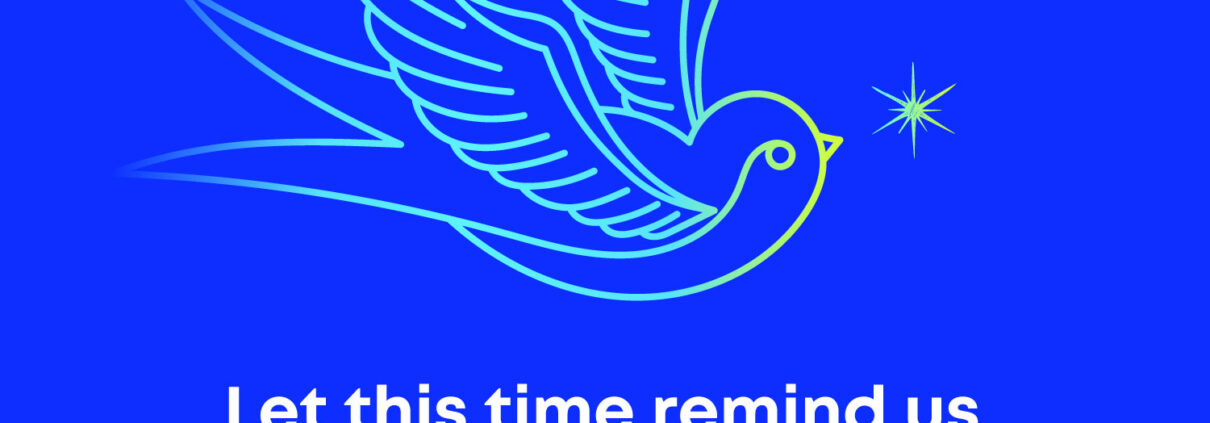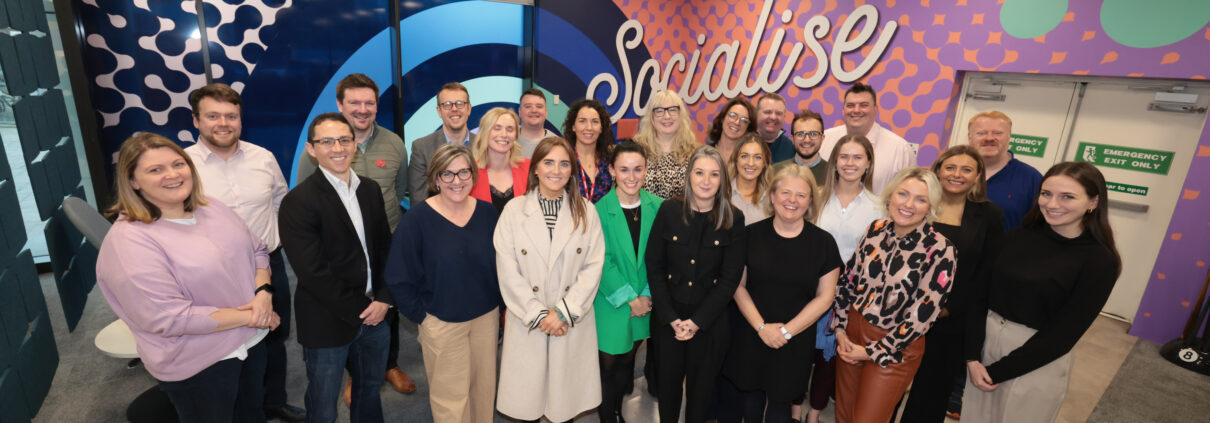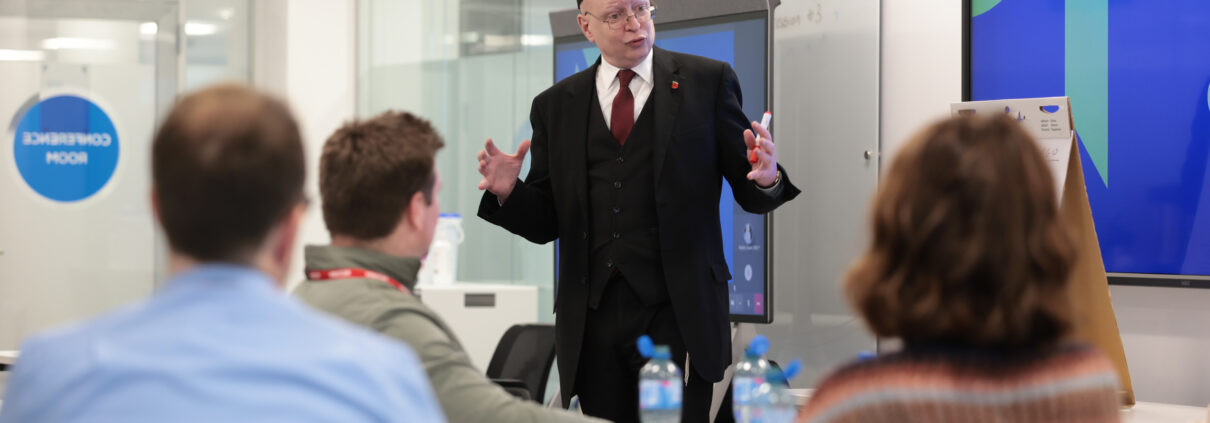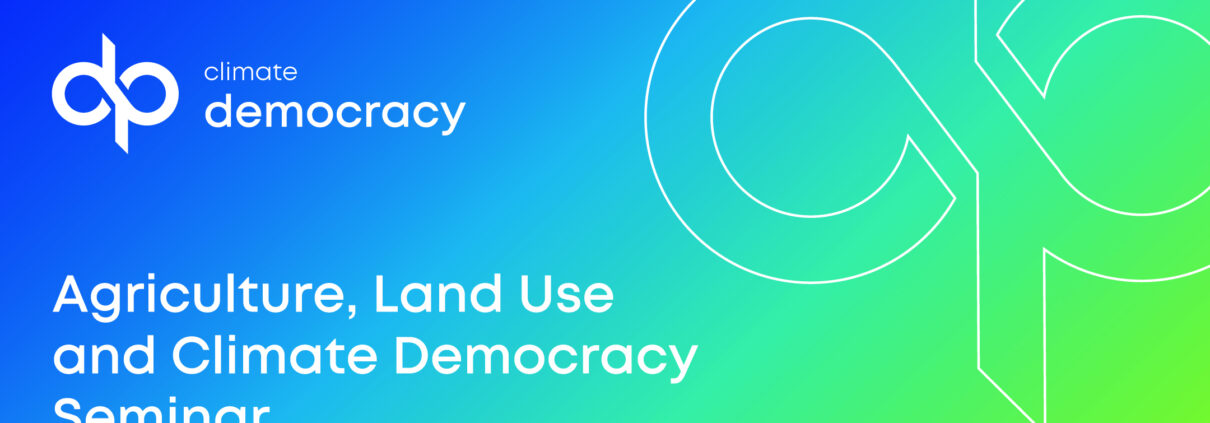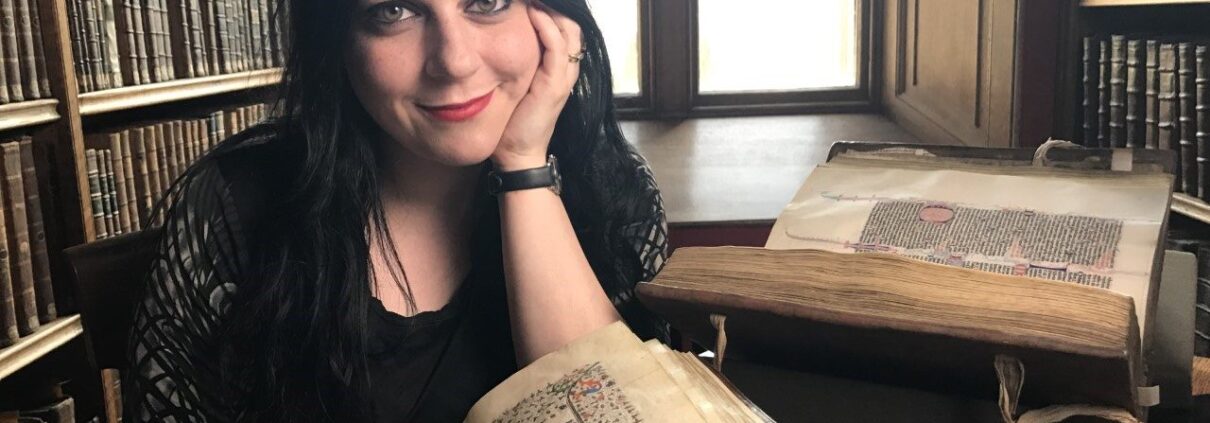Merry Christmas and a Happy New Year!
Merry Christmas and a Happy New Year from the Centre for Democracy and Peace team
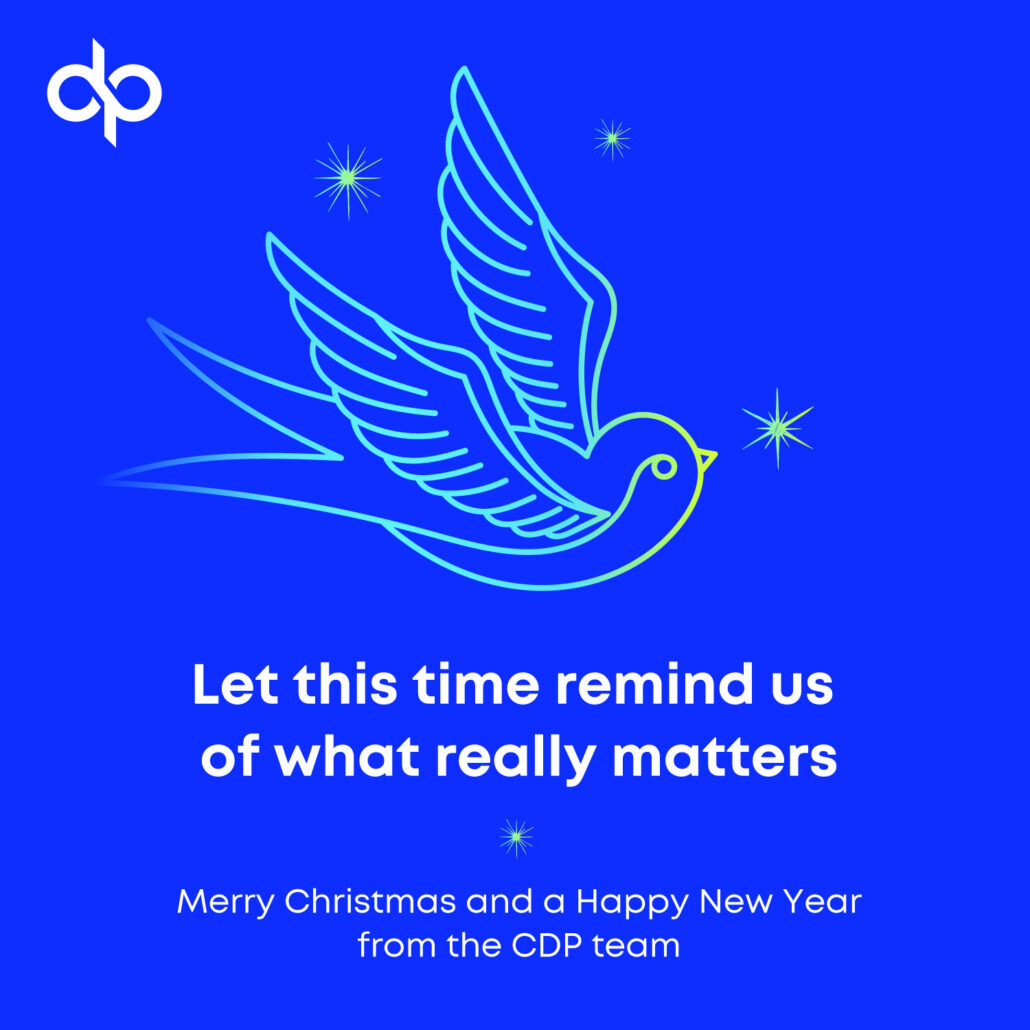
As we gather with loved ones to celebrate this festive season, let us take a moment to reflect on the world we share. We live in a world that can often feel divided, cruel, and unfair.
Yet, kindness, compassion, and empathy are gifts we all can give this Christmas; gifts that are capable of healing divides and rekindling the shared humanity that unites us.
At the Centre for Democracy and Peace we remain steadfast in our commitment to building a better future for all. We believe in the transformative power of small acts of kindness, meaningful collaboration, and a shared dedication to the greater good.
As we look ahead to 2025, let us make peace our greatest wish – a peace that begins within ourselves, radiates into our communities, and reaches every corner of the globe.
Thank you to all of our partners, colleagues, and members for your continued and vital support that make the work of CDP possible.
Merry Christmas, and may 2025 bring healing, harmony, and joy.
———————–
To keep up to date, follow our Twitter/X and LinkedIn accounts, as well as subscribing to our newsletter to get involved in future events.
Fellows reflect at midway point of Centre for Democracy and Peace’s Leadership Programme
Reflecting at the midway point of this year’s Centre for Democracy and Peace Fellowship Programme, this year’s Fellows have described an “infectious enthusiasm” for collaboration and innovate thinking as they tackle Northern Ireland’s most pressing political, business, and civic challenges.
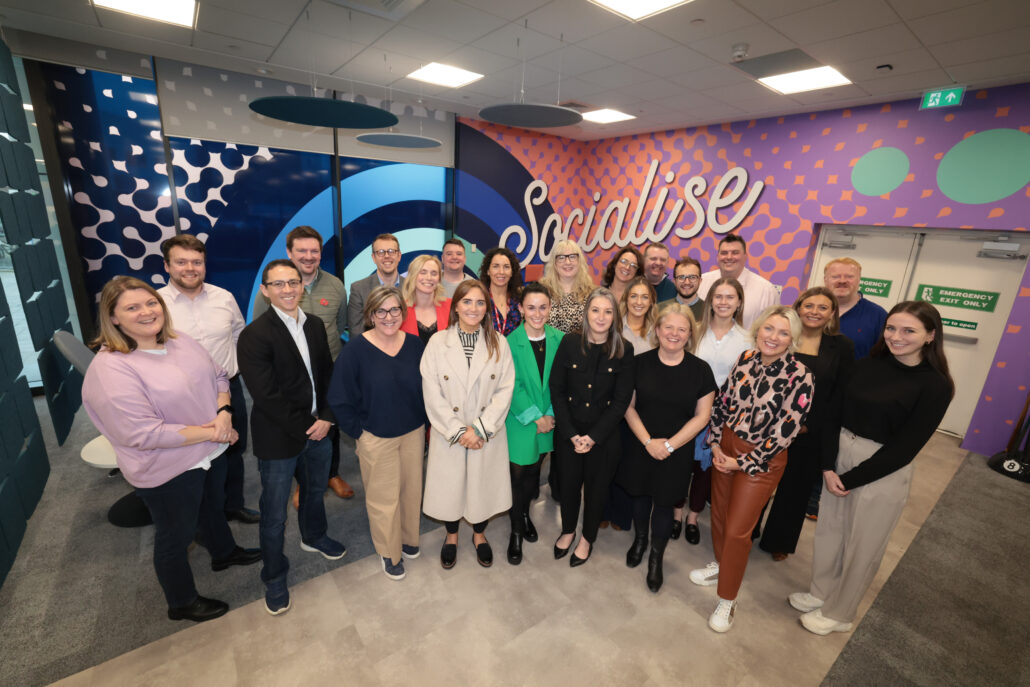
The Centre for Democracy and Peace’s 2024/25 Fellows pictured with CDP CEO Eva Grosman at Allstate NI in Belfast.
The current Fellowship is the largest cohort to date—28 leaders representing a diverse range of sectors. These include MLAs and councillors from the world of politics, CEOs and directors from the business world, as well as participants from charities, health, education, and the civil service.
So far, the Fellows have participated in the Oxford residential and sessions such as design thinking , climate and sustainability, and Good Governance and the Nolan Principles of Public Service with Daniel Greenberg CB, Parliamentary Commissioner for Standards and Privileges.
Through these bespoke sessions delivered by experts in their fields, the Fellows have been challenged to step outside their comfort zones and embrace the spirit of possibility, tackling critical issues such as climate and energy, policy, and governance. They have also been working on group projects, which they will present at the end of the seven-month programme. These challenges focus on supporting the arts, improving transport accessibility, changing the culture around political campaigns and elections, and campaigning for skills development in rural communities.
The Fellowship now boasts 98 alumni who contribute more effectively to society thanks to the relationships they have built through the programme.
One of the Fellows, Scott Carson, Constituency Office Manager for Education Minister Paul Givan MLA (DUP), shared:
“From the launch right through until today, the enthusiasm has been really infectious. The residential in Oxford was brilliant—it was a great time to meet the new Fellows, learn about each other, and realise that, regardless of our roles, we’re all on the same level. CEOs, private sector professionals, public sector participants, and those involved in politics—it was fascinating to learn from their experiences.”
“The programme’s sessions have challenged me personally, and I know others in the cohort feel the same. We left Oxford with new tools to apply in our respective organisations. Working on group projects has been a new challenge, and we’re really settling into them now. The projects we’re currently working on are all very different but equally interesting. It’ll be fascinating to see how they progress.”
“Sessions with NIE Networks and Camlin Group, and at Allstate NI last month have been intense but rewarding. The combination of theory and practical application has given us new ideas and concepts to approach our work differently. It’s been incredibly busy, but the journey has been thoroughly enjoyable.”
Cahir Hughes, Head of The Electoral Commission Northern Ireland, shared insights into his group’s project:
“Our project focuses on changing the culture around elections and political campaigns. Unfortunately, we’ve seen increasing toxicity in campaigns, with candidates and elected representatives facing horrendous abuse and intimidation.”
“Our group is tackling this issue by bringing together people from diverse sectors to find solutions and present them to government. Tackling these behaviours is a massive task, but I’m optimistic we can make a difference.”
“One unexpected benefit of the Fellowship has been the friendships I’ve developed. Being around other leaders and hearing how they approach challenges has helped grow my confidence in leadership and decision-making.”
Jane McCooey, Executive Director and Chief Operating Officer at Morgan Stanley, said:
“The Fellowship Programme has exceeded my already high expectations. The people are amazing, inspiring, and collaborative. I live in New York, so coming back and hearing about the incredible work being done in Northern Ireland makes me feel connected—it’s exactly why I joined.”
“I’m passionate about the diaspora’s role in giving back to Northern Ireland. Learning about what people here are doing inspires me to explore nonprofit work and think about how I can contribute. My group’s challenge on supporting the arts scene is especially exciting—we want to make a tangible impact by raising awareness and support for Northern Ireland’s artists.”
Reflecting on the programme’s progress, Darragh McCarthy, Chair of the Fellowship Programme’s Advisory Board and CEO of FinTrU, said:
“We’ve never had greater momentum. This is our largest cohort, with 28 Fellows who are gelling incredibly well. The Fellowship Programme is a breeding ground for optimism. Everyone involved believes in a better Northern Ireland and is eager to contribute to that vision.”
“We’re looking forward to the second half of the programme, including a Dublin residential and the graduation in Hillsborough in March. With almost 100 alumni already, the momentum is strong, and we’re excited about the future.”
The Centre for Democracy and Peace’s Fellowship Programme is supported by Northern Irish businesses, including Allstate NI, Camlin Group, FinTrU, Fujitsu NI, NIE Networks, and Ulster Carpets. It also receives backing from the Irish Department for Foreign Affairs and the Irish American Partnership.
Laurence Simms, Joint Secretary to the British-Irish Intergovernmental Secretariat, commented:
“The Fellowship Programme is well-designed to bring together professionals at pivotal career stages, fostering connections and fresh perspectives whilst challenging them through its activities.”
“We’ve supported reconciliation work for 40 years, and this programme feels modern, forward-looking, and focused on today’s challenges. It addresses systemic gaps and inertia, building a sustainable basis for an inclusive future in Northern Ireland and beyond.”
———————–
To keep up to date, follow our Twitter/X and LinkedIn accounts, as well as subscribing to our newsletter to get involved in future events.
Parliamentary Commissioner for Standards, Daniel Greenberg CB, visits Northern Ireland to guide Centre for Democracy and Peace’s Fellows on Principles of Public Life
Daniel Greenberg CB, the UK’s Parliamentary Commissioner for Standards has visited Northern Ireland to participate in the Centre for Democracy and Peace’s Fellowship Programme, delivering an insightful session to the 2024/25 cohort.
As the official responsible for upholding MPs’ conduct and propriety since January 2023, Greenberg’s engagement focused on fostering ethical leadership and exploring the critical role of trust in both public and private sectors.
The Fellowship Programme, now in its fourth year, brings together 28 leaders from the political, civic, and business communities in Northern Ireland for a seven-month journey. The programme aims to equip participants with the skills and perspectives needed to drive Northern Ireland’s growth and stability by encouraging innovative leadership, collaborative decision-making, and a commitment to public service principles.
In his session, Greenberg guided Fellows through the application of the Nolan Principles of Public Life—selflessness, integrity, objectivity, accountability, openness, honesty, and leadership—and how they shape decision-making processes. Building on a previous session, he also helped participants explore how these values can drive meaningful policy creation and help bridge public and private sector goals.
Daniel Greenberg CB, Parliamentary Commissioner for Standards, said:
“Public trust is facing challenges worldwide, and this erosion impacts the ability of leaders across sectors to operate effectively. The Fellowship Programme addresses this issue by fostering a culture where respect and integrity underpin leadership, creating a foundation for trust to grow between the public and its leaders. This focus on respect as a cornerstone for trust is what makes this programme so valuable.”
Leadership and Climate
In 2022, the Northern Ireland Assembly passed its first Climate Change Act, which set a target for a 100% reduction in net greenhouse gas emissions by 2050. To meet this and other climate-related goals, leaders across a wide range of sectors—including business, government, agriculture, transportation, finance, and tourism—must work together to find sustainable, innovative, and fair solutions.
by Nicole Fintel

Last month, the Centre for Democracy and Peace hosted a conference that explored the intersection of climate change and democracy. Professor John Sweeney of Maynooth University explained that climate degradation, loss of land due to rising sea levels, and resource scarcity can lead to civil unrest and the destabilization of democracy. Additionally, climate change can lead to international conflict by increasing tensions between countries that produce the majority of the world’s greenhouse gas emissions (primarily in the Global North) and countries that suffer most from the impacts of greenhouse gas emissions (primarily in the Global South).
Likewise, Professor John Barry—a Co-Director of the Centre for Sustainability, Equality, and Climate Action at Queen’s University Belfast—emphasized that democracy in times of climate change requires a “just transition” to clean energy and sustainable practices. To achieve this “just transition,” according to Professor Barry, climate leaders need to:
Leaders must also address the societal disparities that are exacerbated by the climate crisis. The United Nations reports that women and children are 14 times more likely to die in natural disasters than men, and approximately 80% of individuals displaced by climate change are women and girls. Similarly, countries, communities, and individuals with limited access to wealth, healthcare, education, and infrastructure tend to be disproportionately harmed by the impacts of climate change.
With effective climate leadership, the transition to net zero will be viewed not only as a means to secure a habitable and healthy planet for future generations, but as an opportunity to build a more just, prosperous, and inclusive economy and society.
Nicole Fintel is a Pforzheimer Public Service Fellow, Harvard College, and Programme Co-Ordinator for CDP.
———————–
To keep up to date, follow our Twitter/X and LinkedIn accounts, as well as subscribing to our newsletter to get involved in future events.
Agriculture, Land Use and Climate Democracy Seminar | 14 October | The MAC Belfast
Agriculture, Land Use and Climate Democracy Seminar
- 14 October 2024 | 9am – 5pm
- The MAC Belfast
- FREE | Register at: HERE
The transition to net zero is a generational challenge and transformative opportunity for policy makers and public leaders across Ireland and the UK. Managing the pace and scale of change to meet this transition in a just manner poses unprecedented challenges, made more complex by the headwinds of pandemic, war in Europe, political polarisation, and a generational cost of living crisis.
The purpose of this programme is to contribute to building the policy and political leadership that will be necessary if we are to deliver an orderly, just, inclusive and effective transition. Rather than tackling all aspects of the transition, this first pilot programme offers a deep dive on agriculture/land use and democracy as two inter-related dimensions of the transition that pose distinctive challenges to policy making on the island of Ireland.
Agriculture is the dominant source of Ireland’s greenhouse gas emissions, and the sector now faces new pressure from the EU to go beyond efficiencies to deliver meaningful mitigation and adaptation through nature-based solutions for example, while also producing good quality food, ensuring soil health, and good standards of living for farmers and rural communities.
Farmers across Europe have recently led a powerful backlash against the EU’s Green Deal, and the Nature Restoration law underlining the need for far greater investment in stakeholder engagement and a focus on co-designing economically and socially just transition pathways that more fairly distributes impacts on winners and losers, while also based on the climate science.
Getting agricultural and land use policy aligned to the climate transition is a defining challenge and opportunity for this generation of political and policy leaders on the island of Ireland. Getting it right will significantly de-risk the island’s transition and offer important lessons in leadership of value to the rest of Europe and beyond. Both the democratic legitimacy and policy effectiveness of any transition will be enhanced by including affected communities in the design and implementation of policy. This is to avoid or mitigate the type of anti-climate policy backlash we saw in the gilets jaunes/yellow vest movement in France in 2018, or the current farmer/rural backlash against ecological and climate policies across most European countries.
Speakers including:
- Professor John Sweeney, Maynooth University
- Ian Marshall OBE, Centre for Advanced Sustainable Energy (CASE), Queens University Belfast
- Professor John Barry, Co-Director of the Centre for Sustainability, Equality and Climate Action, Queens University Belfast
- Dr Ciara Brennan, Director, Environmental Justice Network Ireland
- Kiera O’Brien, Chair of the US Environmental Protection Agency National Environmental Youth Advisory Council
- Professor David Rooney, Academic Director, Centre for Advanced Sustainable Energy (CASE), Queens University Belfast
Jadwiga: Europe’s Female King at the Frontline of History | 17 October | Weston Library, Oxford
Join Professor Janina Ramirez to learn about the life, love and reign of the 14th-century Polish royal Jadwiga – one of only two female kings in Europe.
This event is organised in collaboration between the Bodleian Libraries, the Centre for Democracy and Peace and the Polish Cultural Institute in London, to mark the inauguration of a Visiting Fellowship in Polish Studies at the Bodleian Libraries Special Collections.
Jadwiga: Europe’s Female King at the Frontline of History
- 17 October 2024 | 11.30am – 1pm
- FREE, booking essential
- Book HERE.
About Professor Janina Ramirez
Professor Janina Ramirez is a lecturer, researcher, author and broadcaster. She is Research Fellow in History of Art at Harris Manchester College, University of Oxford, and Visiting Professor in Medieval Studies at the University of Lincoln. Her most recent book, ‘Femina: A New History of the Middle Ages Through the Women Written out of it’, was an instant Sunday Times number one best-seller, Waterstones Book of the Month and Book of the Year.
Janina is also an award-winning documentary-maker, with 15 years of writing and presenting for the BBC, Sky Arts and Arte. Her films include ‘The Search for the Lost Manuscript’, ‘Britain’s Millenium of Monasteries’, and ‘Chivalry and Betrayal: The Hundred Years War’. Her repeating series ‘Raiders of the Lost Past’ has included episodes on the Olmec Heads of Mexico, the Lion Man of Germany, and Tutankhamun in Egypt. She is a regular contributor to radio, having developed the series ‘Decoding the Masterworks’ and presenting for Front Row.
Janina has taught at York, Warwick and Winchester Universities, the Victoria and Albert Museum, and Oxford University. She has published extensively, including monographs on The Private Lives of Saints, Julian of Norwich and Beowulf. She has also written a series of children’s novels and non-fiction, including Goddesses in collaboration with the British Museum. Her forthcoming book, ‘Legenda: A New History of Nation Building Through the Women at the Heart of It’, is due for release in July 2025 with Penguin-Random House.
Janina is a patron of many organisations, including NSEAD, the Stained Glass Society and Oxford Festival of the Arts, and an ambassador for the Centre for Peace Keeping and Democracy. She is Lifetime President of Gloucester History Festival, a Fellow of the Royal Historical Society and the Royal Society for the Arts.

